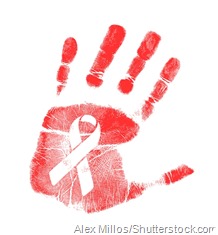In November 2013, it was reported that an infant (known as the “Mississippi baby”) had been in prolonged remission from HIV and was apparently cured. However, after 2 years without taking antiretroviral therapy and having no evidence of the virus, the child now has detectable levels of HIV.
 The infant was born in 2010 to an HIV-infected mother who had not sought pre-natal care and was not diagnosed with HIV until the time of delivery. The infant was administered liquid, triple-drug antiretroviral treatment from 30 hours after birth and testing confirmed that the infant was infected with HIV.
The infant was born in 2010 to an HIV-infected mother who had not sought pre-natal care and was not diagnosed with HIV until the time of delivery. The infant was administered liquid, triple-drug antiretroviral treatment from 30 hours after birth and testing confirmed that the infant was infected with HIV.
The baby continued to receive the liquid antiretroviral therapy until becoming lost to follow up at 18 months. When the infant was brought to the clinic 5 months later, neither HIV nor HIV-specific antibodies were detectable. Antiretroviral medicines were therefore not reintroduced and the child remained free from detectable HIV for more than two years.
A routine clinical assessment in July 2014 detected HIV levels in the child's blood, and the finding was confirmed in a further test 72 hours later. HIV antibodies were also found and the child had low levels of a key component of the immune system (CD4+ T-cells). Antiretroviral therapy was reintroduced and effectively lowered virus levels without side effects. The HIV currently infecting the child was confirmed by genetic sequencing to be the same strain as that acquired from the mother.
Deborah Persaud, professor of infectious diseases at the John Hopkins Children’s Center in Baltimore involved in the ongoing analysis of the case, said:
The fact that this child was able to remain off antiretroviral treatment for two years and maintain quiescent virus for that length of time is unprecedented
Dr Fauci, Director of NIAID (National Institute of Allergy and Infectious Diseases) said “The case of the Mississippi child indicates that early antiretroviral treatment did not completely eliminate the reservoir of HIV-infected cells that was established upon infection but may have considerably limited its development and averted the need for antiretroviral medication over a considerable period.”
Research is now underway to better understand how the child remained without detectable virus or immune response whilst not receiving treatment for more than two years and to determine how such a period of HIV remission could be sustained in the absence of antiretroviral therapy. A clinical trial is to be conducted by NIAID and the Eunice Kennedy Shriver National Institute of Child Health and Human Development (NICHD), to build on the case of the 'Mississippi baby'.